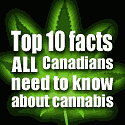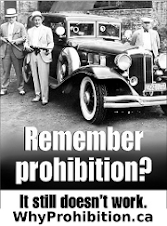So this new added page to my blog will highlight some of my favourite articles, those I find interesting and informational, and yes, even some that are pure rhetoric and ideological opinion. I'm even going to throw in some favourited YouTube Videos. I'll also highlight public comments that are worth the read and some that may have you shaking your head in disbelief. Feel free to pass on the links, as I always say, "Pass It To the Left", because sharing is caring.
~MaryJane
To kick things off, I'll start with an article from "The Hill".
~Are U.S. Pot laws the root cause of Mexican drug violence?
Comment by "Eric" - All drugs were legal up till 1914. Heroin and opium was sold on every corner and marijuana was legal. Was the world falling apart until 1914? No, patent medicines came along. It is well documented that drugs were not made illegal cause they were dangerous, it was the ethnic groups who used them. Ex. Marijuana was first made illegal to push Mexican immigrants out of the southwest border towns.Anyway Portugal decriminalized ALL drugs in 2001, after 9 years it is being hailed as a success. Crime rates have dropped, more people are getting treatment and more young people are deterred from using. Amsterdam has half the rate of pot usage among it's youth that the US and it has been quasi legal since the 70's. On the other end of the spectrum Iran executes drug users but they have the highest rate of opium addiction in the world. Harsh laws do not work to deter drug use. Every drug dealer who is captured or killed is replaced, every bust or seizure doesn't hinder the availability of drugs. The harsher the laws the more drug dealers can profit by raising prices to meet the risk.what I find truly sad is every time I go to Wal-mart they have an entire wall filled with pictures of missing children, and we spend almost no resources trying to find them. Every major city has hundreds of narcotics officers, and maybe 4 who investigate missing children and pedophiles. The more we crack down on drugs, the less we crack down on other crimes. Yet the US busted 800,000 people for pot last year with no effect on the national crime rate! More people are waking up and starting to see this.BY Eric on 03/18/2010 at 14:09
~SAVE OUR FARMS! - The ‘Save Our Farms’ campaign was launched by the men and women who oversee, instruct and work with inmates in federal prison farm programs, members of the Union of Solicitor General Employees (USGE-PSAC). We welcome the support of national, regional and local organizations that have an interest in a safe, secure and sustainable food supply. Also read "THE FUTURE OF PRISON FARMS II" and be sure to take notice of all the awesome links in the sidebar.
~Why Students Hold The Key To Ending Marijuana Prohibition
~Why is Marijuana Illegal? - Anslinger immediately drew upon the themes of racism and violence to draw national attention to the problem he wanted to create. He also promoted and frequently read from “Gore Files” — wild reefer-madness-style exploitation tales of ax murderers on marijuana and sex and… Negroes. Here are some quotes that have been widely attributed to Anslinger and his Gore Files:
“There are 100,000 total marijuana smokers in the US, and most are Negroes, Hispanics, Filipinos, and entertainers. Their Satanic music, jazz, and swing, result from marijuana use. This marijuana causes white women to seek sexual relations with Negroes, entertainers, and any others.”
“…the primary reason to outlaw marijuana is its effect on the degenerate races.”
“Marijuana is an addictive drug which produces in its users insanity, criminality, and death.”
“Reefer makes darkies think they’re as good as white men.”
“Marihuana leads to pacifism and communist brainwashing”
“You smoke a joint and you’re likely to kill your brother.”
“Marijuana is the most violence-causing drug in the history of mankind.”
~ YouTube Video - With So Many Serious Crimes, Why Do Cops Bust Pot Users?
~ YouTube Video - The Union: The Business Behind Getting High on CBC's the Hour, Interview with Adam Scorgie and Brett Harvey
~YouTube Video - Stephen Harper's Drug Strategy
~ YouTube Video - Toronto Narcs Corrupted by The Lure of Easy Drug Money
~ YouTube Video - Undercover Narc and Judge Discuss Legalization Benefits
~ WHAT IS HEMP/CANNABIS/MARIJUANA? - a must read, a plethora of info
~ Hemp Hearts
~ Hemp Seeds Help Improve circulation in Diabetics « Naturally Type 1
~ Torture Inc. Americas Brutal Prisons
~ The Charter of Health Freedom
~ The little-told story of how the U.S. government poisoned alcohol during Prohibition - By Deborah Blum - Slate Magazine
~ David Bratzer and Law Enforcement Against Prohibition Have Fought in the Trenches of the War on Drugs and Want to End It mauitime Cover Story
~ Doctor: Drug war waged against wrong people
~ The New Jim Crow: How the War on Drugs Gave Birth to a Permanent American Undercaste - BlackListed News
Farmers up in arms at herb listing - "Farmers and traditional medicine experts have reacted angrily to the listing of 13 widely used herbal plants as hazardous substances, suggesting there is a hidden agenda that favours chemical companies..."
~ Measuring crime and punishment | WhyProhibition.ca
~ Ideology Trumps Science in the Harper Government's 'New' Drug Policy | Mostly Water
~ The high social and financial cost of prison privatization | National Union of Public and General Employees
HT to David Bratzer of LEAP for highlighting the article "Urban farming" with great comments, like this one, replying to the Chief who stated "marijuana was never legal, whereas alcohol was. Criminalizing a substance that was both legal and pervasive is a different matter than retaining the status of a drug that was never legal and never as pervasive as alcohol."
Anonymous said...
Tom Casady - "marijuana was never legal... alcohol was". Actually, the outlawing of cannabis, at least at the federal level, didn't start until 1937 with the Marihuana Tax Act (though there were a few earlier state and local laws). That is, the USA did not embark on cannabis prohibition until after it had tried and given up on acohol prohibition, and even that Act did not actually criminalise possession, but rather it imposed a requirement to buy tax stamps on anyone dealing it - and the government refused to sell anyone tax stamps, in a sneaky prohibition-disguised-as-tax-law kind of way. Cannabis was 'officially' criminalised with the Controlled Substances Act in 1970.
The 1937 act was passed with almost no debate or research input, and if you read up on Harry Anslinger, the main driving force behind cannabis prohibition, you'll see just how strongly he was motivated by pathological hatred of ethnic minorities rather than concern for public health, and, as an aside, it's interesting to note that when research was commissioned on the subject (by Richard Nixon, who ordered the Shafer Commission to investigate in 1970), the commission recommended decriminalisation of personal possession, reasoning that "The actual and potential harm of use of the drug is not great enough to justify intrusion by the criminal law into private behavior". Nixon famously ignored the report, and did the exact opposite of what it recommended.
You also note that alcohol is far more pervasive than cannabis. This is true, but it says nothing about which, if either drug, it is morally permissible to punish people for using. After all, cocaine is much more pervasive than mescaline, for example, but you wouldn't on that basis alone decide that mescaline use is more deserving of punishment than cocaine use - and if we follow that logic to its conclusion, we ought to be prepared to say that in a society where cannabis is more pervasive than alcohol, it would be fine to punish drinkers but not cannabis smokers. We don't, and for the good reason that complex moral questions are not resolved by opinion polls.
You said "if illegal drugs were decriminalized, would this increase usage, hence resulting in more of their negative impacts?"
This is a valid concern. However, we cannot just look at harms caused by the pharmacology of drugs; we must also consider the harms caused by social policy surrounding drugs. It’s possible that cannabis use would increase following decriminalisation, especially if we include legalisation of production and sale. But it is likely that the average harms to users would decrease, as cannabis products would surely be regulated for safety/purity/potency like alcohol and tobacco currently are. One of the main factors in making cannabis a mental health risk seems to be the ratio of two chemicals, tetrahydrocannabinol (THC) and cannabidiol (CBD), where CBD tends to counteract the more dangerous effects of THC, but more potent strains of cannabis can contain almost no CBD, thus making it more risky than cannabis with a mix of the two - that could be regulated under a legal market. Also the availability of legal cannabis would massively undercut the job opportunities for organised crime, and thus the violence that it uses to protect its business. Witness the ongoing carnage in Mexico, where drug trafficking cartels are engaged in a war against the police, the army and each other. The death toll now runs to over 5000 a year, many of them innocent civilians caught in the crossfire. Much of the profits of these groups comes from cannabis. There is nothing inherently violence-inspiring about cannabis - indeed, for most users it has a mellowing effect - but there is something inherently violence-inspiring about vast sums of illegal money, requiring weapons to protect it because the law won't. We know this from the experience of Al Capone - it wasn't alcohol per se that made him rich, powerful and murderous, it was illegal alcohol profits.
(continues below)
March 15, 2010 8:03 AM
Anonymous said...
(continued) Some people say "won't other crimes increase, like extortion and robbery, if we deprive organised criminals of their biggest source of income?" - but this won't wash, because there simply isn't enough money in non-drug crime to support as huge a black market as we currently have - and anyway, surely we shouldn't be supporting organised crime by providing the price support mechanism that prohibition entails.
The general point is: even if drug use increases post-decrim, it would take a very substantial increase to cancel out the benefits we would gain from taking the market out of the hands of violent gangsters, and from lowering the individual health risks to users who will know they are getting a quality controlled, uncontaminated product.
Even then there is no guarantee that use would increase at all. The example of Portugal, where simple possession of any drug is no longer a criminal offence (since I think 2000), though sale remains illegal, is instructive. They have had an increase in cannabis use, but a decrease in diamorphine ('heroin') use. Personally, I would be happy to pay the price of an increase in the use of one of the less dangerous prohibited drugs in exchange for a decrease in the use of one of the most dangerous.
You say that cannabis possession is punishable only by a fine in Nebraska - and this is certainly preferable to jail time, but I would return to my earlier point that if we are going to impose criminal penalties, even minor ones, we need to have very good reason to believe that the action is one for which people deserve punishment.
By the way, I'm not really au fait with Nebraska Law (I'm from Scotland) - does that £100 fine come with a permanent criminal record?
There is, of course, nothing wrong with the state taxing cannabis more highly than non-drug products, or putting restrictions on where and when it can be sold or consumed, age restrictions, limitations on advertising - these are all potentially useful forms of regulation which can serve to mitigate the risks of what is a more dangerous than average commodity (though probably not more dangerous than alcohol - see previous post). But none of these things are punishments. Like I say, to justify punishment, you need to show that the behaviour is such the person deserves to have their normal rights to liberty (or, in the case of a fine, private property) suspended.
I can't recommend highly enough the book 'Legalize This' by the legal philosopher Douglas Husak, available cheaply on Amazon, for an thorough deconstruction of all the arguments that are currently used to support punishment of personal drug use. You might also be interested in 'Drug Crazy' by Mike Gray, which is an entertainingly written narrative of drug (including alcohol) prohibition in the USA, and some of its more devastating consequences in Latin America. That's free to read online at http://libertary.com/books/drug-crazy .
Have a go at those and you should at least come to realise that you and I are on the same team - we both want to see less drug-related harms to society; we only disagree about what's an effective and humane way of going about it.
David, Blairgowrie
~ Pot shot - "Some believe legalizing marijuana sends a bad message to children. Does it?" "One of the most insidious problems with prohibition is that it impedes good drug education for youngsters, because prohibition requires dishonesty." Please also take the time to read the Comments after this great interview.
~ Let the sick decide if marijuana is medicine -
- And the kicker? This awesome article is in a HEARST newspaper!
~ Cannabis coin released in Benin - I want one!
~ Marijuana's illegal status attained through racism, fraud and greed
~ A Population-Based Case-Control Study of Marijuana Use and Head and Neck Squamous Cell Carcinoma
~ Cannabis coin released in Benin - I want one!
~ Marijuana's illegal status attained through racism, fraud and greed
~ A Population-Based Case-Control Study of Marijuana Use and Head and Neck Squamous Cell Carcinoma















No comments:
Post a Comment
High! Thanks for taking the time to leave a Comment. :)